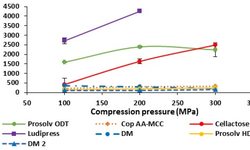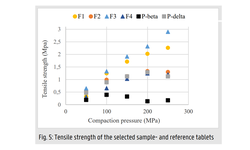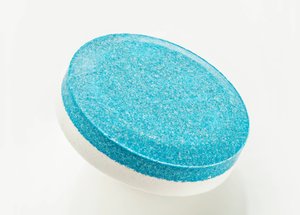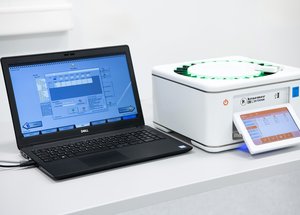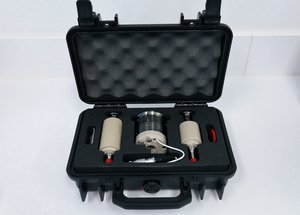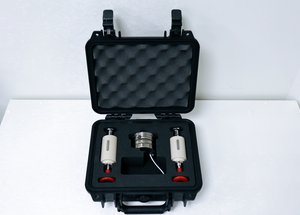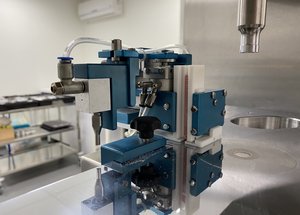Scientific papers
Background: Developing floating drug delivery systems (FDDS) is a complex task. To simplify this process, a method was introduced for the simultaneous assessment of drug release and flotation.
Objective: The study aimed to utilize lipophilic mini-tablet formulations based on functionalized calcium carbonate (FCC) as a model system to create FDDS exhibiting specific floating characteristics, including no floating lag time, extended flotation, and loss of floating capability after complete drug release.
Materials and methods: The in vitro release of the model drug caffeine from the mini-tablets was evaluated using a custom stomach model. Tablet dissolution was simulated using a cellular automata-based model. Floating forces were calculated based on the in silico data and analyzed in relation to caffeine release.
Results and discussion: Two distinct floating behaviors were observed for mini-tablets: a linear decrease in floating force and the maintenance of floating capability until complete caffeine release. An optimized mini-tablet formulation with the desired drug release time and floating behavior was developed and tested.
Conclusion: The study proposed a classification system for various floating behaviors of FDDS. The FCC-based mini-tablets exhibited an ideal floating behavior, characterized by a defined duration of flotation and a decrease in floating capability after drug release completion.
Comments
No comments posted yet.
Add a comment

